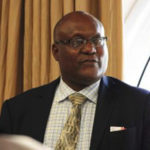As Uganda is set to commemorate Philly Bongoley Lutaaya day on Saturday 17th, men have been asked to learn from him and engage in the initiatives that prevent and reduce the accelerating rates of HIV/AIDS infections in the country.
Esther Mbayo the minister in charge of Presidency, asks that men can be at the forefront of fighting against the spread of HIV/AIDS in this country like Lutaaya did, then it would be possible to have it out of Uganda by 2030.
Philly Bongoley Lutaaya, one of Uganda’s greatest musicians, came out openly as having HIV/ AIDS and started preaching about HIV and how each and every one should protect themselves. This was the beginning of Uganda’s success story and Philly gave HIV/AID.
Lutaaya used music to convey a message of hope and to educate the population about HIV/AIDS and how to prevent it. He indeed pioneered the fight against stigma and discrimination of people living with HIV. Today, his song Alone and frightened remains Uganda’s anthem for HIV/AIDS.
Minister Mbayo notes that since men are the decision makers, they should be good examples by testing for HIV/AIDS and encourage their spouses to do the same. Minister Mbayo believes that this will help both men and women to know their HIV status and start on the medication as early as possible.
The ministers added that other initiatives like men engaging in the prevention of mother to child transmission, disclosing their HIV status if they are possible, will as well be of the help.
She however notes that social-cultural barriers continue to widen the gap of gender inequality, thus increasingly making women more powerless in decision making, an act she says contributes to the spread of HIV/AIDS especially when it comes to openly fighting the disease.
Dr Stephen Watiti who has lived with HIV for over 30 years says men have a great role to play in fighting HIV/AIDS because they are the leaders in our societies.
Watiti argues that if a man tests HIV positive and keeps quiet, the disease will eat him up. He adds that men should go for testing and if they test HIV, they should not be in hiding since it does help at all.
He notes that despite the work Philly Bongoley Lutaaya and other activists, stigma and discrimination of people living with HIV remains a significant barrier in Uganda’s fight against HIV/AIDS which he believes men should come out and fight against.
As a result, many people with HIV delay to be tested, treated, fail to adhere to their medication and therefore cannot achieve viral suppression, a challenge that Watiti says men should engage in and fight.
Esther Kabashambo, a student at Makerere University who lives with HIV/AIDS explains that even among unmarried youths, especially those dating, a boy is very important in being at the forefront of fighting HIV since girls tend to listen to decisions taken by their boyfriends.
Kabashambo who is also the national miss Y+, a beauty pageant that is organized by Uganda Network of young people living with HIV to fight stigma and discrimination in young people, says men should be the ones cheer leading because women tend to follow them and through that it will be easy to prevent spread of HIV/AIDS in Uganda.
Tezra Lutaaya, a daughter to the late Musician Philly Bongoley Lutaaya explains that men in any society in Uganda have an upper hand in all activities. She adds that her father set a heroic example which men should look up to and fight HIV/AIDS in this country.
Uganda has made significant progress in reducing new HIV infections, HIV prevalence and AIDS related deaths.
In the late 80’s and early 90’s, HIV prevalence ranged from 18 per cent among the general population up to 30 per cent in specific population groups.
It is now at 6.8 per cent for women and 4.2 per cent for men, 2.8 per cent among young women and 1.1 per cent among young men.
There are approximately 1,400,000 people living with HIV and 1,200,000 of these are on treatment. There were 53,000 new HIV infections and about 20,000 AIDS related deaths in 2019 alone.







